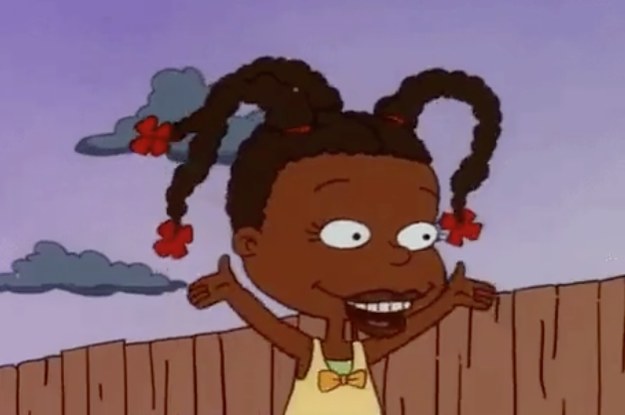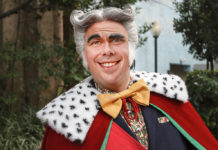Black female cartoon characters – Abigail Lincoln, Valerie Brown, Susie Carmichael, Keesha Franklin, Foxxy Love, Jodie Landon, and Foxxy Love are just a few of the black female cartoon characters featured in animated media.
Many of us carry childhood memories of cartoons with us into adulthood.
Many of us have fond recollections of glued-to-the-TV-set hours spent watching our favourite black female cartoon characters as kids, whether it was Saturday morning cartoons or after-school specials. For those of us who came of age in the ’80s and ’90s, there were also several unforgettable black female cartoon characters.
Which one do you like best? Black women cartoon characters who have made history
These fictional people weren’t simply cartoons; they had a real-world impact and inspired us. They paved the way for black female cartoon characters to be seen as heroines, musicians, and investigators. They accomplished all this with poise, elegance, and many attitudes.

Codename: Kids Next Door’s Numbuh 5
Codename: Kids Next Door has a character named Numbuh 5, also known as Abigail Lincoln. She is the only woman in Sector V and is respected for her brilliance, ingenuity, and confidence.
Regarding black female cartoon characters, Numbuh 5 is a pioneer. Her persona is radiant with assurance, bravery, and lack of inhibition. She speaks her mind and defends her convictions without hesitation. She is an invaluable member of Sector V because of her fighting and strategic abilities.
Numbuh 5’s swag sets her apart from other Black female cartoon characters. Her style is reflected in her choice of vibrant colours, patterns, and accessories.
The distinctive coif worn by Numbuh 5 has become a symbol of the programme. Her swagger expresses her confidence and individuality and helps her stand out.

Jimmy Neutron’s Libby Folax
One of the most well-known black female cartoon characters in children’s animation, Libby Folax stars in the Jimmy Neutron: Boy Genius TV series and is a fan favourite.
Libby is known for her humour and ability to cut through the crap without flinching. She is a dependable buddy who is always there for her pals when they need her. Libby’s extraordinary singing and dancing skills are also routinely shown at school functions.
Libby stands out because she is one of the only black female cartoon characters participating significantly in a mainstream animated series. She is a powerful symbol of the strength, self-assurance, and potential success of Black girls and women. Libby also challenges preconceptions about Black women by demonstrating multifaceted personalities and interests.

Drawn Together’s “Foxxy Love”
Foxxy Love is a powerful and confident Black female cartoon character in the adult animated TV series Drawn Together.
Foxxy Love is the epitome of the term “swag.” Her many endearing qualities are her self-assurance, sexual allure, and power to get what she wants. She stands out from the other cast members with her seductive voice, voluptuous body, and edgy style. In addition, Foxxy has a reputation for having a sharp tongue and making cutting comments.
Foxxy is more than just a pretty face; she has a deep, complicated character arc. She is fiercely devoted to her friends and never hesitates to stand up for what she believes in. Throughout the program, her mysterious history becomes apparent.
Foxxy’s portrayal of Black women is critical. Her persona goes against the grain of popular media portrayals of women by being fiercely assertive and self-reliant.

Jake Long and Trixie Carter in American Dragon
Fans of the American Dragon: Jake Long animated TV series love Trixie Carter because of her fierce individuality, witty banter, and formidable fighting skills.
Trixie is confident and astute and welcomes new challenges with open arms. She also has a beautiful sense of humour that helps keep the programme lighthearted.
As a squad member with great combat talents, Trixie is crucial to the success of the show’s protagonist, Jake Long.

Kim Possible’s Monique
Actress Raven-Symoné lends her voice as Monique, a fashionable high school student who goes to Kim Possible’s school.
Monique is a formidable fighter and problem solver who can easily adapt to any circumstance. She also has a dry sense of humour and a quick wit.
Monique is Kim Possible’s best friend and trusted advisor throughout the series, giving her a hand whenever needed. Also, she is Kim’s closest friend and sidekick, Ron Stoppable’s go-to gal for style tips and assistance with his many scams.

Totally Spies’ Alex Casey
Alex is portrayed as the most fashion-conscious of the three spies and a vibrant, carefree, and gregarious adolescent who likes surfing and playing video games. But she also shows off her fighting skills, with impressive displays of power and agility that come in handy throughout various tasks.
Alex is a vital component of the espionage team throughout the show, contributing her abilities and viewpoints to each operation. Her upbeat demeanour and unwavering positivity are legendary for lifting her colleagues’ spirits in the face of adversity.

X-Men: The Animated Series Storm
Storm’s influential, educated, and confident demeanour and her unwavering dedication to standing out for mutant rights are consistently displayed throughout the series.
She often takes charge of the squad in the heat of battle, drawing on her formidable combat prowess and innate leadership qualities.
Under being a black female character featured prominently in a popular animated television series, Storm symbolizes a significant step forward in the annals of animated television history.

Daria’s Jodie Landon
In the program, Jodie is shown as Daria Morgendorffer’s bright and driven classmate in their same high school. Jodie is unique among her peers. Daria’s cynicism and jadedness find an intellectual counter in her since she is one of the few classmates who can keep up with her.
Jodie is also a gifted public speaker and debater who actively participates in extracurricular activities. Although centred on a black child, Jodie’s plot is not about race. However, the programme does not shy away from discussing race and racism, as seen by Jodie’s encounters with her white peers and educators.
In one episode, Jodie fights against the school’s racism after being refused a coveted scholarship because of her colour.
As Told by Ginger’s 7-year-old narrator, Miranda Killgaller
Despite her undesirable tendencies, the programme shows Miranda as very bright and clever. She uses her knowledge to plot and control others.
Her parents are described as very controlling and demanding that she achieve at any cost.
As the series unfolds, we learn more about Miranda’s past and her efforts to balance her ambition and genuine self. She shows her fragile side and her ability for empathy, making her a more multidimensional character and less of a monster.

Jem’s Shana Elmsford
The programme paints a picture of Shana as a creative force who excels in music and fashion. Moreover, since she is the only person of colour in the Holograms, she symbolizes the show’s dedication to fostering inclusive media.
Throughout the series, Shana consistently displays her wit, common sense, and pragmatism and often acts as the group’s calming influence. Her contribution to the Holograms is invaluable because she keeps the group focused and on track. In addition, Shana is a creative and intelligent thinker who actively seeks out new approaches to the problems faced by the Holograms.

Rugrats’ Susie Carmichael
Susie Carmichael is a regular black female cartoon character on the Nickelodeon show Rugrats, where she voices a positive role model for the show’s younger viewers. She is also shown as very talented, with examples of her involvement in the arts, athletics, and the classroom.
In some episodes, Susie’s ethnicity is a focal point of her plot since she is one of the few black girl cartoon characters in the programme.
Interactions between Susie and other characters, who make assumptions about her because of her ethnicity, serve as a vehicle for highlighting the difficulties faced by persons of colour in contemporary society.
In one episode, a gang of older males racially harass Susie, isolating her and making her feel bad about herself. Her character, however, actively demonstrates strength and bravery, encouraging readers and viewers to take a stance against bigotry and persevere in the face of hardship.

Josie and the Pussycats’ Valerie
Valerie stood out as one of the few black female cartoon characters on animated TV at the time. She portrays a powerful, confident young lady who isn’t afraid to advocate for what she believes in. Valerie takes the lead throughout the series in addressing themes of racism and injustice. In addition, she has used her music to advocate for social change and action, criticizing the music business for its lack of diversity in one episode. The need for more opportunities for artists of colour to break through to a broader audience is something she stresses.

Batman Beyond’s Maxine, Third Platoon
Maxine “Max” Gibson has a recurring appearance as a brilliant and technologically intelligent high school student named Terry McGinnis in the animated series Batman Beyond. Her technological knowledge and hacking prowess would greatly aid Terry’s Batman missions. Max’s portrayal as a strong, confident, and opinionated young lady who isn’t hesitant to speak her mind directly challenges conventional gender roles and expectations. Her character’s initiative and sense of agency are welcome additions to children’s animated programming.

Penny Proud, Second Daughter of the Proud Family
Penny Proud presents herself as a vibrant and unusual young lady who is strong, confident, and self-reliant. Her presence as a black female cartoon character is significant because it challenges preconceptions and encourages diversity in children’s animated television.
Her enthusiasm for style and “swag” is a nice change of pace. Throughout the series, Penny takes a stand on issues of racism, prejudice, and social justice.
One episode has her character speaking up against a racist comic book, while another features her character challenging a biased clothing rule at her school.

The Princess and the Frog’s Tiana
Tiana is shown in the film as an independent young lady who works hard to open her own restaurant. Her portrayal of a strong and confident black girl cartoon character challenges long-held gender and racial norms.
Tiana fights prejudice and unfair treatment throughout the film, mainly because of her colour and socioeconomic status. She advocates for the value of community and family support, individual effort, and goal pursuit.
These are some of the most famous black female cartoon characters ever.

















